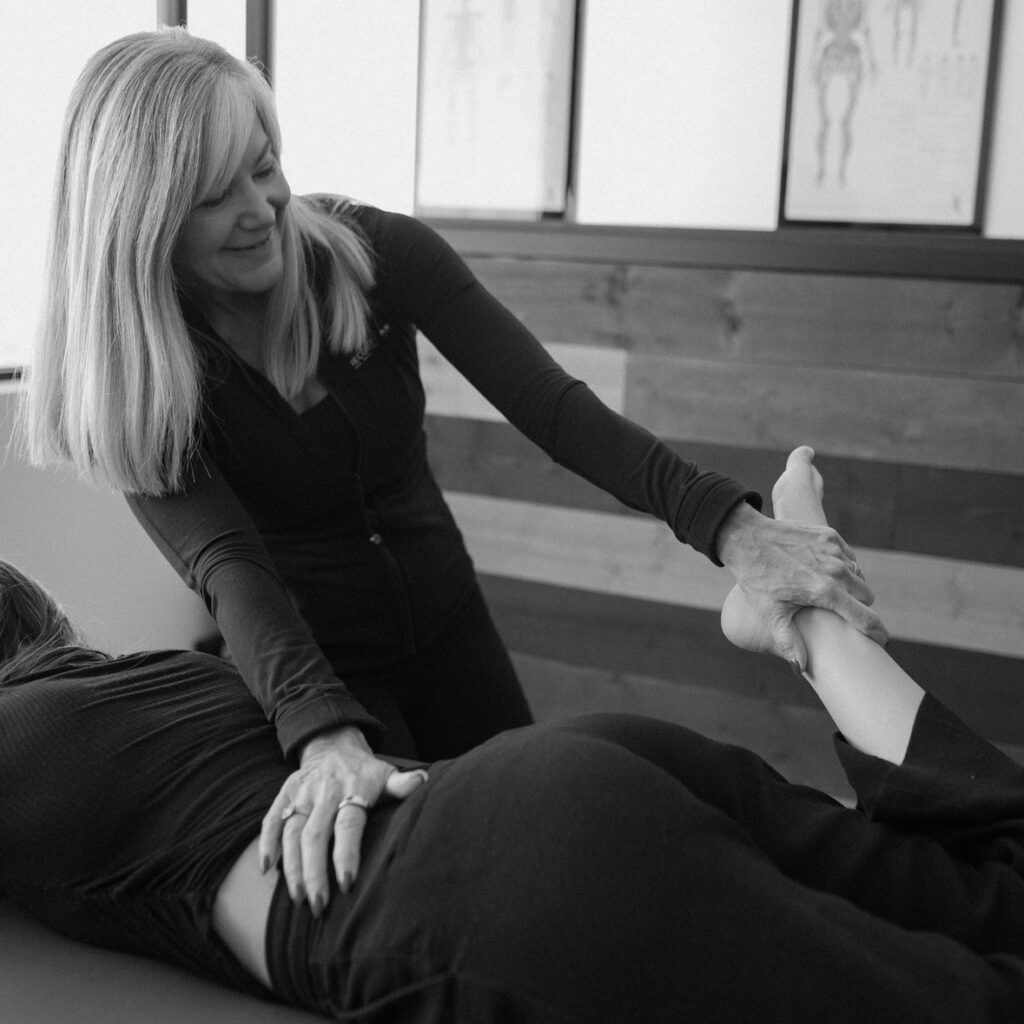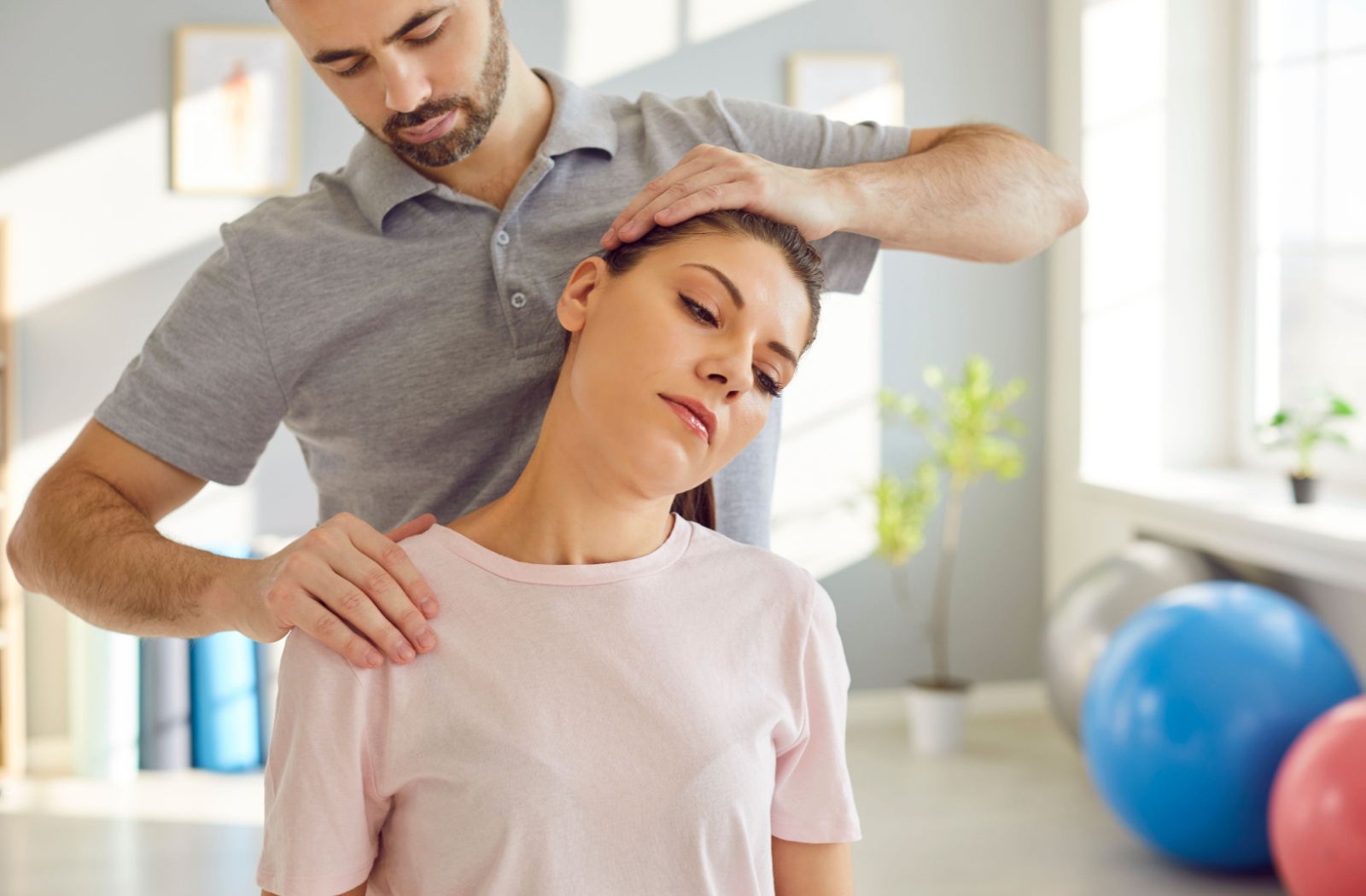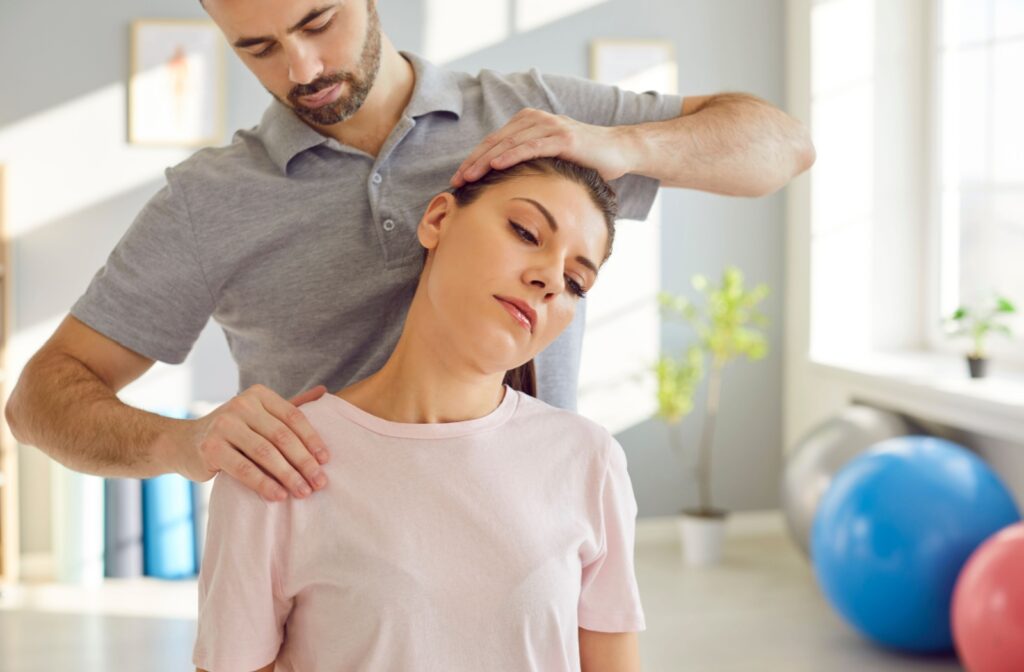Whether you’re pushing for a new personal record or just navigating a busy day, your body may sometimes feel tight and out of sync. This tension can limit your movement and hold you back from feeling your best.
Techniques like Fascial Stretch Therapy can help improve how you move.
Assisted stretch is a personalized method that can help you enhance your flexibility, improve your mobility, and support your overall physical well-being. It’s a cooperative process where a trained professional helps you achieve a deeper and more effective stretch.
What Is Assisted Stretch & How Does It Work?
Assisted stretching involves a professional guiding your body through a series of stretches. This allows you to relax into a deeper stretch than you might achieve on your own. It’s a supportive way to improve your range of motion and help your muscles recover. If you’re curious about the process, we’ve written an overview of what to expect at a treatment.
A Personalized Approach to Your Body’s Needs
Your session begins with a conversation about your current mobility and any areas of concern you may have. This allows for a customized plan that targets your lifestyle, situation, and goals.
How a Professional Guides Your Stretch
Our team of professionals uses their knowledge of anatomy to gently guide you through each movement. They apply steady pressure and use targeted techniques to help your muscles lengthen safely and effectively. This careful guidance helps you get the most out of every stretch.
5 Benefits of Assisted Stretching
Adding assisted stretching to your routine can offer several positive outcomes for your body. Here are five key ways it can support your physical wellness.
Enhancing Your Mobility & Range of Motion
Assisted stretch can help your joints move more freely through their full range. This can make everyday activities like reaching for something on a high shelf feel easier. It also contributes to more fluid and efficient movements in your athletic pursuits, which is a key part of improving hip, ankle, and shoulder mobility.
Improve Your Performance & Flexibility
Greater flexibility allows your muscles to work more effectively and powerfully. By targeting specific muscle groups, assisted stretching can help you gain the flexibility needed for better performance. This can translate to a stronger stride, a deeper squat, or a more powerful swing.
Help Prevent Injuries
Muscle imbalances and tightness are common contributors to strains and other injuries. Assisted stretching addresses these issues by promoting better posture and alignment. By creating a balanced and flexible body, you make yourself more resilient and better prepared for physical demands.
Speed Up Recovery & Reduce Muscle Soreness
This focused stretching helps increase blood flow to your muscles. Improved circulation delivers more oxygen and nutrients to your tissues, which can help shorten recovery time. It also helps flush out metabolic waste products that contribute to soreness after a workout, similar to other sports recovery techniques.
Get a Personalized Stretch Experience
Unlike a general stretching routine, an assisted session is tailored specifically to you. The professional focuses on your body’s tight spots and restrictions, making the session highly productive. This personalized attention ensures you’re working on what matters most for your body.
How to Get the Most from Your Session
A little preparation and open communication can make your experience more productive. Knowing what to expect allows you to relax and focus on your body. Here are a few things to keep in mind before and after your appointment.
What to Expect During Your Appointment
You’ll be guided through stretches on a comfortable, padded table. It’s a good idea to wear clothing that allows for a full range of movement, like workout gear. Communication is important. Always let your professional know how each stretch feels.
Tips for After Your Session
After your stretch, it’s important to rehydrate. You might feel more relaxed and notice an immediate improvement in how you move. Pay attention to your body over the next day or two to feel the full effects.
Important Safety Tips for a Good Stretch
While stretching is beneficial, using the proper technique is key to avoiding injury. Whether you’re with a professional or on your own, these simple tips can help you stretch safely. Remember to always work with your body, not against it.

Listen to Your Body & Avoid Pain
You should feel mild tension during a stretch, but never sharp pain. If a movement hurts, you have pushed too far. In fact, stretching should always feel good.
Strive for Symmetry
Aim to have similar flexibility on both sides of your body. Working toward a sense of balance from left to right can help reduce your risk for injury. Pay attention to any differences and give tighter areas a little extra focus.
Don’t Stretch Cold Muscles
Always warm up your body before you start to stretch. A simple 5 to 10-minute walk or some light cardio is enough to increase blood flow.
Find Your Path to Better Movement
Adding assisted stretching to your routine is a proactive step toward better flexibility, mobility, and overall wellness. At Recovery Lab, we create a welcoming and positive space focused on your health. We believe in sincere, inclusive care to help you achieve your goals. If you’re ready to explore how assisted stretching can fit into your wellness plan, please contact us to get started.



